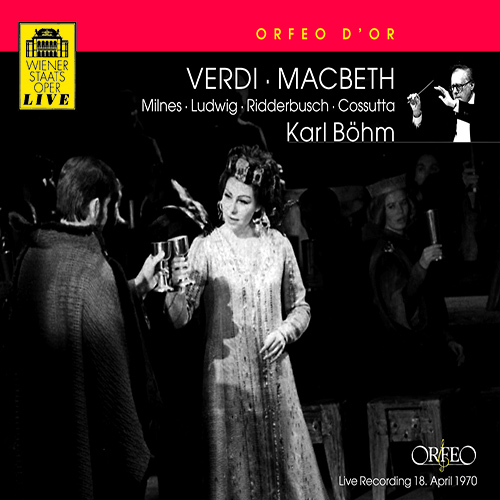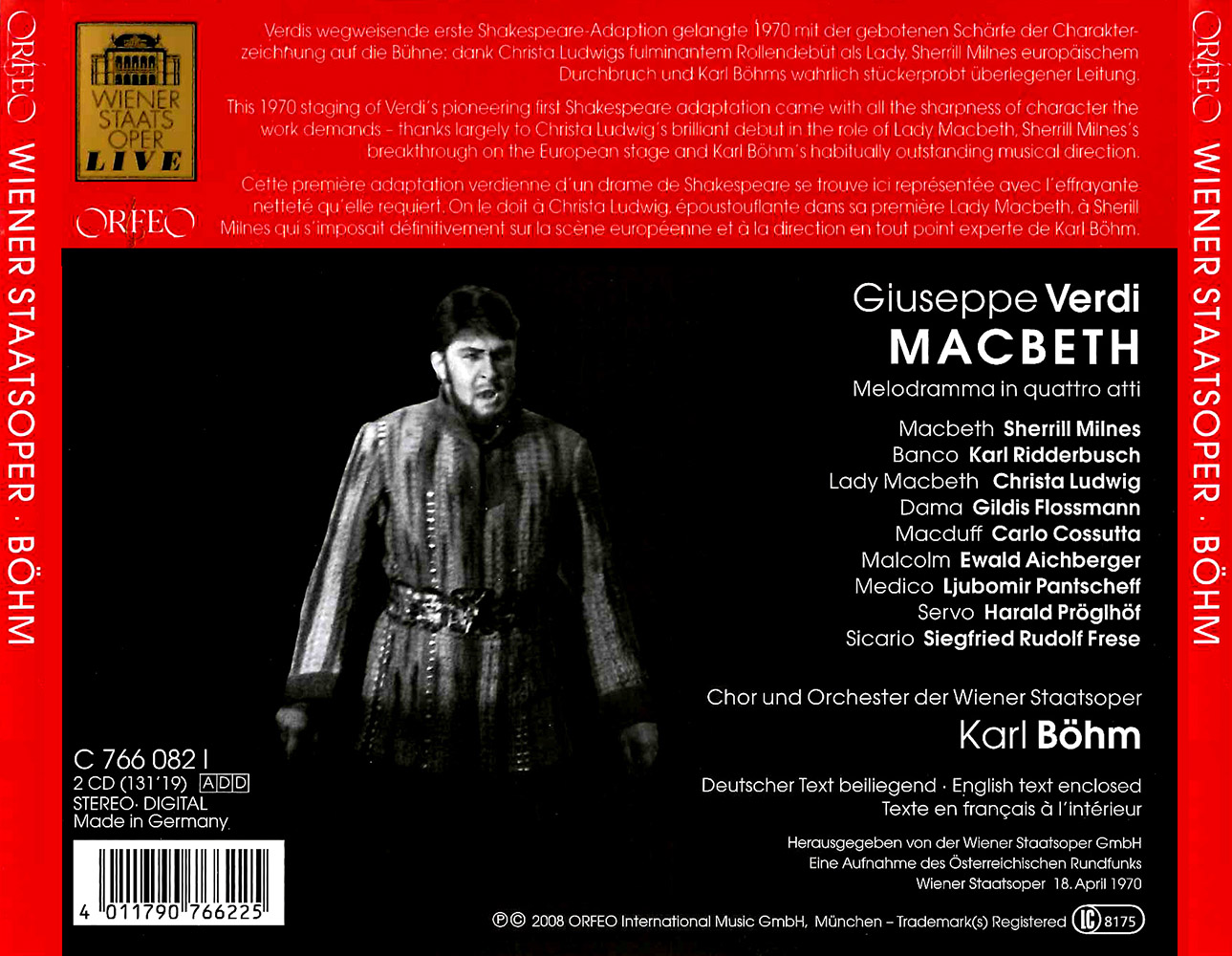Macbeth (excerpts)
Masterpiece though Verdi’s Macbeth undoubtedly is, it was only at a relatively late date that it found a niche for itself in the repertory of the world’s major opera houses. Even today it is difficult to cast the two main roles satisfactorily, but there was no question that this ideal had not been achieved at the Vienna State Opera’s highly successful new production in 1970. Making his house début, the young Sherrill Milnes was also making his first major appearance in Europe, and he immediately impressed his listeners with a voice that was powerful and even throughout its whole range. So profound and lasting was the impression that he left that he soon became a frequent and popular visitor to the State Opera, most notably as Scarpia in Puccini’s Tosca. In the great Apparition Scene in Act Three, in particular, Milnes revealed his ability to create a fully rounded character in his depiction of a man driven by fear and a desire for power. He was partnered by the Lady Macbeth of Christa Ludwig, who at this stage in her career was already a Viennese institution. The role of Lady Macbeth represented both a postscript to, and a turning away from, the hochdramatisch roles that she had essayed during the previous period. Availing herself of her dark-toned timbre and the range of colour of her mezzo-soprano voice, she was able to realize her aim of portraying Lady Macbeth as a seductress who leads Macbeth into a life of crime. In this she received the full support of the conductor, Karl Böhm, who reasserted his claims as a Verdian, claims first aired in the 1940s and 1950s, when he had conducted Macbeth in Vienna with tremendous success. Once again his conducting combined the subtlest of nuances with, where necessary, coarser brushstrokes, so that numbers such as the Conspirators’ Chorus acquire a very real energy in the present live recording, robbing it of all sense of routine. The same is true of the smaller roles, which are cast from strength: as Macduff, Carlo Cossutta – later a distinguished Otello – brings his ringing tenor to music expressive of lamentation and accusation, while avoiding any hint of sentimentality. Karl Ridderbusch’s Banquo, finally, makes it clear why the German bass was in a class of his own in the German repertory.

















